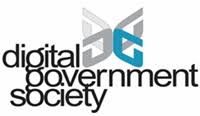Digital government and meaningful connectivity
Opportunities and challenges for theory and practice
DOI:
https://doi.org/10.59490/dgo.2025.927Keywords:
Meaningful connectivity, digital government, digital services uptakeAbstract
The panel aims to explore the role of meaningful connectivity in digital government theory and practice, identify existing gaps, and propose future research directions. The meaningful connectivity perspective, which transcends binary Internet access metrics, is generally defined by the presence of infrastructure, affordability, and digital skills—dimensions considered crucial for ensuring that low-income and vulnerable populations can effectively use digital public services. The panel discussion will also showcase practical case studies of meaningful connectivity measurement in Brazil, Chile, the Dominican Republic, and Uruguay using the methodology developed by the Regional Center for Studies on the Development of the Information Society (Cetic.br), a UNESCO Category II center located in Brazil. By engaging experts and researchers in digital government, the panel intends to provide valuable insights for academics, policymakers, and practitioners aiming to enhance the adoption of digital public services and bridge digital divides.
Downloads
References
Alliance for Affordable Internet. (n.d.). Meaningful connectivity – unlocking the full power of Internet access. [link]
Bélanger, F., & Carter, L. (2009). The impact of the digital divide on e-government use. Communications of the ACM, 52(4), 132-135. https://doi.org/10.1145/1498765.1498801
Brazilian Network Information Center. (2024). Meaningful connectivity: Measurement proposals and the portrait of the population in Brazil (NIC.br Sectoral Studies). CGI.br. [link]
Brazilian Information Center. (n. d.). ICT Households. [link]
Castello, G. (2024). Meaningful connectivity in Brazil: The portrait of the population. In Brazilian Network Information Center, Meaningful Connectivity: Measurement proposals and the portrait of the population in Brazil (NIC.br Sectoral Studies, pp. 77-136). CGI.br. [link]
Helbig, N., Gil-García, J. R., & Ferro, E. (2009). Understanding the complexity of electronic government: implications from the digital divide literature. Government Information Quarterly, 26(1), 89-97. https://doi.org/10.1016/j.giq.2008.05.004
G20. (2024). G20 Rio de Janeiro leader's declaration. G20. [link]
International Telecommunication Union. (2022). Achieving universal and meaningful digital connectivity: Setting a baseline and targets for 2030. [link]
Macaya, J. F. M. (2024, October). Electronic government and meaningful connectivity levels: Who is really positioned to benefit from digital transformation in government?. In Proceedings of the 17th International Conference on Theory and Practice of Electronic Governance (pp. 425-429).
United Nations. (2024). Global digital compact. [link]
Downloads
Published
How to Cite
Conference Proceedings Volume
Section
License
Copyright (c) 2025 Manuella Maia Ribiero, Maria Alexandra Cunha, Elsa Estevez, J. Ramon Gil-Garcia

This work is licensed under a Creative Commons Attribution 4.0 International License.


